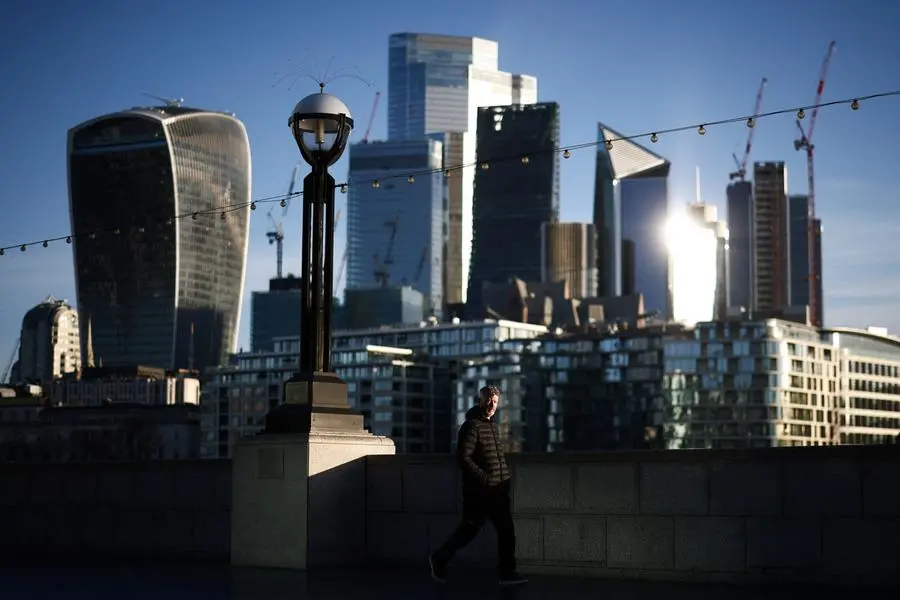PHOTO
British inflation cooled in February by slightly more than economists and the Bank of England had expected, paving the way for interest rate cuts in the months ahead.
Consumer prices rose by a slightly weaker-than-expected 3.4% in annual terms in February, slowing from a 4.0% increase in January, and the lowest rate of inflation since September 2021, the Office for National Statistics said on Wednesday.
A Reuters poll of economists - and the BoE's own forecast published last month - had pointed to an annual rate of 3.5%.
Food and selling prices in eateries were the biggest downward drags, offset by an upward contribution from motor fuels.
Core inflation, which excludes energy, food and tobacco prices, also slowed to 4.5%, down from 5.1% in January. The Reuters poll had pointed to a reading of 4.6%.
The figures were published on the day that the BoE's interest rate-setters are due to vote on borrowing costs.
The announcement of their March policy decision is due at 1200 GMT on Thursday.
Investors slightly increased bets that the BoE will start cutting interest rates in August. Sterling was little changed.
"Inflation is no more persistent than the BoE expected and is moving in line with the path that the BoE has hinted would warrant interest rate cuts," Paul Dales, chief UK economist at Capital Economics, said.
Services inflation, which the BoE watches closely, slowed to 6.1% from 6.5% in January - as the central bank had expected last month.
BOOST FOR SUNAK
The BoE has said that kind of underlying inflation pressure in the economy remains too persistent for it to cut interest rates now although it has signalled that lower borrowing costs are likely later this year.
The BoE and the government's fiscal forecaster, the Office for Budget Responsibility, think inflation - which peaked above 11% in October 2022 - will fall back to the central bank's 2% target in the coming months.
The figures will also be welcomed by Prime Minister Rishi Sunak ahead of a national election likely later this year.
With his Conservative Party trailing badly in the opinion polls behind the opposition Labour Party, Sunak has sought to take credit for more than halving inflation, although there has been scant sign of an opinion poll boost for him so far.
Finance minister Jeremy Hunt, responding to Wednesday's data, said good news on the economy could help the government with its goal of abolishing social security taxes altogether.
"This sets the scene for better economic conditions which could allow further progress on our ambition to boost growth and make work pay," Hunt said in response to the ONS data.
Hunt cut the rate of social security contributions on March 6 for the second time in less than four months.
However, he said any further tax cuts would be done only if the government could avoid increasing borrowing or cutting funding for public services.
The Labour Party said prices were still high and that people were worse off after 14 years of Conservative government. (Reporting by Andy Bruce and Suban Abdulla Editing by William Schomberg and Andrew Cawthorne)





















